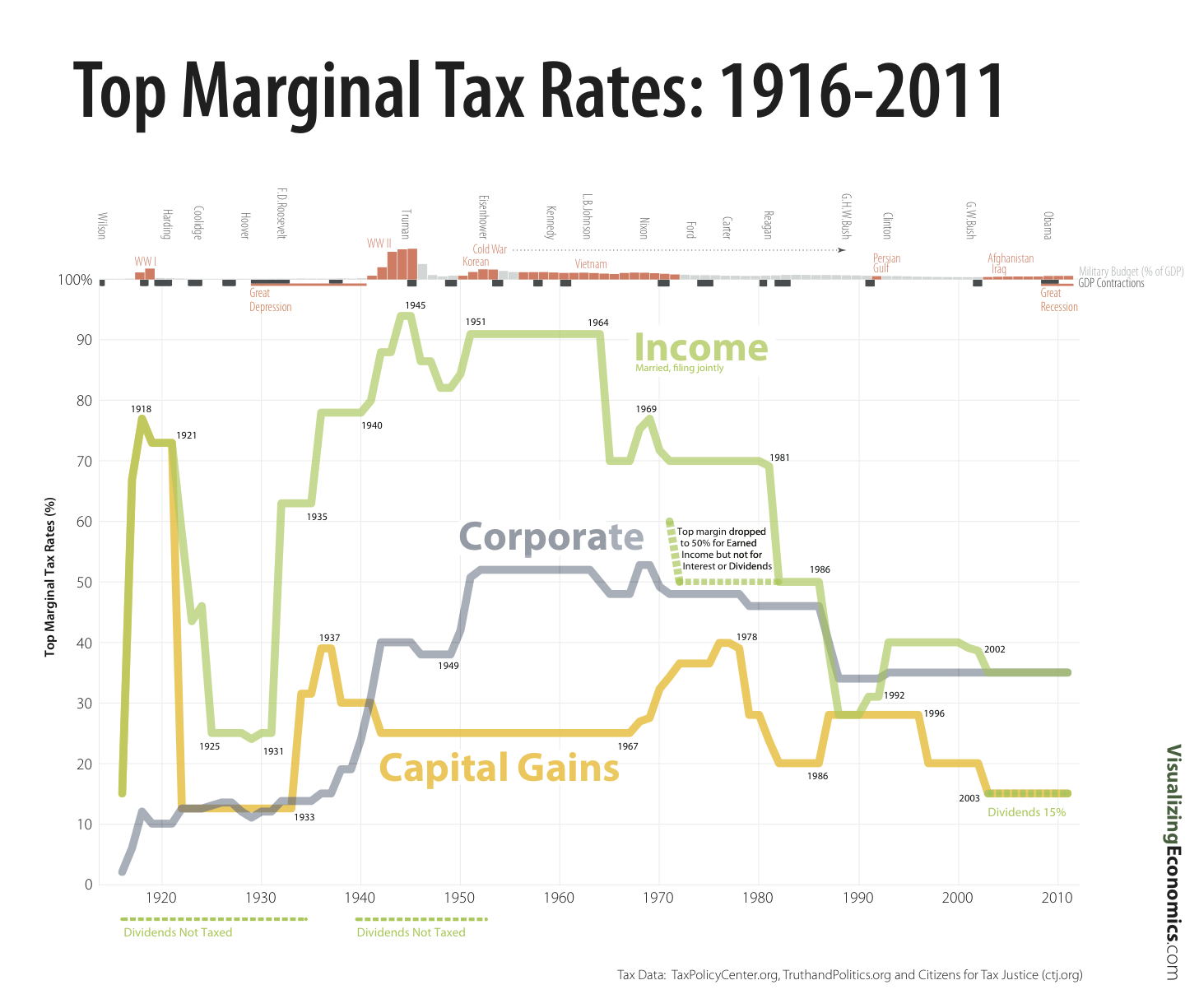Elections Have Consequences—Except Under OIP Derangement Syndrome
President Barack Obama’s opponents continues to try to apply double standards to him, though it’s not always clear when that’s the result of OIP Derangement Syndrome and when it’s simply hypocritical audacity.
Hedrick Hertzberg noted one example in the New Yorker this month:
Back in 2004, George W. Bush boasted at his first post-election press conference, “I earned capital in the campaign, political capital, and now I intend to spend it.” Bush put much of that “political capital” into partially privatizing Social Security, though his proposals before the election had been vague and his election narrow. Bush’s initiative was immediately unpopular and dead by spring.
In contrast, President Obama ran on a clear platform of higher taxes on income over $250,000 in order to preserve government services for the whole population. Mitt Romney offered a very different tax policy, though he later reversed himself to something more vague. Despite Romney’s feeble complaints that the Obama campaign was about little things, that difference over taxes was a big thing all along. It was part of the nation’s choice.
Now Republicans in Washington are acting shocked, shocked that President Obama is negotiating over the budget from the basis of the platform that he campaigned on and that Americans strongly voted for. Ezra Klein summarized the White House position for the Washington Post:
Explore the graph above, showing U.S. top tax rates over time, at Visualizing Economics.
Hedrick Hertzberg noted one example in the New Yorker this month:
In 2004, the editorial board of the Wall Street Journal, conservatism’s Congregation for the Doctrine of the Faith, congratulated President [George W.] Bush for “what by any measure is a decisive mandate for a second term” and exulted, “Mr. Bush has been given the kind of mandate that few politicians are ever fortunate enough to receive.”In fact, about a million more Americans voted for Democratic House candidates than for Republican ones. There will be more Democrats in the House in the next term. Boehner can count those votes and knows what a thin “mandate” he supposedly has.
This year, examining similar numbers with different labels, the Journal came up with a sterner interpretation. “President Obama won one of the narrower re-elections in modern times,” its editorial announced. Also:
Mr. Obama will now have to govern the America he so relentlessly sought to divide—and without a mandate beyond the powers of the Presidency. Democrats will hold the Senate, perhaps with an additional seat or two. But Republicans held the House comfortably, so their agenda was hardly repudiated. . . . Speaker John Boehner can negotiate knowing he has as much of a mandate as the President.
Back in 2004, George W. Bush boasted at his first post-election press conference, “I earned capital in the campaign, political capital, and now I intend to spend it.” Bush put much of that “political capital” into partially privatizing Social Security, though his proposals before the election had been vague and his election narrow. Bush’s initiative was immediately unpopular and dead by spring.
In contrast, President Obama ran on a clear platform of higher taxes on income over $250,000 in order to preserve government services for the whole population. Mitt Romney offered a very different tax policy, though he later reversed himself to something more vague. Despite Romney’s feeble complaints that the Obama campaign was about little things, that difference over taxes was a big thing all along. It was part of the nation’s choice.
Now Republicans in Washington are acting shocked, shocked that President Obama is negotiating over the budget from the basis of the platform that he campaigned on and that Americans strongly voted for. Ezra Klein summarized the White House position for the Washington Post:
Republicans are frustrated at the new Obama they’re facing: The Obama who refuses to negotiate with himself.Republicans in Congress have given us very little reason to expect that they’ll be reasonable negotiators. This pretended surprise is just another sign that they don’t want to acknowledge the election results. They don’t want to respect this President or American voters.
That’s what you’re really seeing in this “proposal.” Previously, Obama’s pattern had been to offer plans that roughly tracked where he thought the compromise should end up. The White House’s belief was that by being solicitous in their policy proposals, they would win goodwill on the other side, and even if they didn’t, the media would side with them, realizing they’d sought compromise and been rebuffed. They don’t believe that anymore.
Explore the graph above, showing U.S. top tax rates over time, at Visualizing Economics.



No comments:
Post a Comment